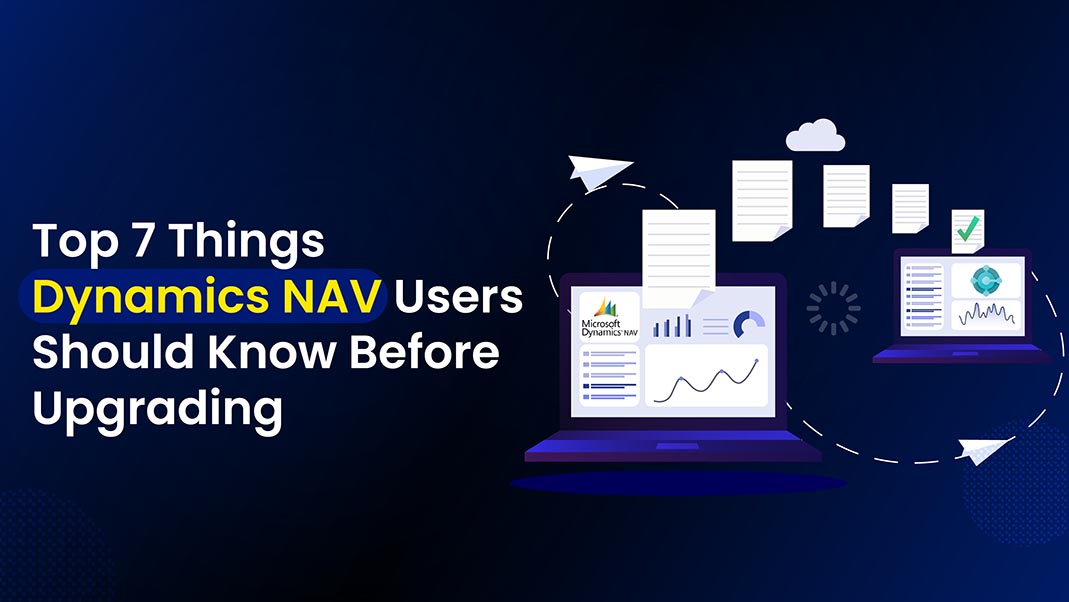Dynamics 365 Business Central Deployment Options: A Comprehensive Guide
Modern businesses rely on adaptable operations to excel in today’s fast-paced environment. Microsoft Dynamics 365 Business Central has been distinguished as a leading ERP solution, earning recognition as the top choice in 2024 by Forbes Advisor. It empowers businesses of all sizes to work smarter, adapt faster, and outperform the competition. Once you’ve chosen Dynamics 365 Business Central, selecting the right deployment strategy is crucial.
But don’t worry, the decision doesn’t have to be overwhelming. Dynamics 365 Business Central offers three deployment options: cloud, on-premises, or hybrid. This article dives deep into each option, analyzing their strengths and potential drawbacks. By the end, you’ll be equipped to choose the perfect fit for your organization, unlocking the full potential of Dynamics 365 Business Central and charting a course to success.
On-Premises Deployment for Dynamics 365 Business Central
Deploying Dynamics 365 Business Central on-premises involves installing and operating the system and data locally, within their organization’s local infrastructure. This approach gives businesses full flexibility over their data and operational systems.
Pros of On-Premises Deployment of Dynamics 365 Business Central
- Absolute Control: Tailor and customize Dynamics 365 Business Central to fit your business requirements perfectly.
- Data Security Fortress: Address specific data privacy and regulatory concerns by keeping your data on-premises.
- Customization Craftsmanship: Tailor Dynamics 365 Business Central extensively to fit your unique business processes.
- Offline Accessibility: Ensure business continuity with offline access, even during internet outages.
Cons of On-Premises Deployment of Dynamics 365 Business Central
- Higher Infrastructure Costs: Significant initial investments in hardware, infrastructure, license and IT expertise are required.
- Maintenance Responsibility: Your in-house IT team is responsible for updates, patches, and troubleshooting.
- Scalability Constraints: Expanding may require additional investments in hardware and infrastructure.
- Slower Feature Adoption: New features and updates may take longer to implement compared to cloud solutions.
Who is a Perfect Fit for On-Premises Business Central Deployment?
On-premises deployment is ideal for businesses in industries with strict data residency regulations, prioritizing data control, security, and customization. It’s well-suited for leveraging existing IT infrastructure and experienced IT teams to maximize investments and customization capabilities
Key Considerations for On-Premises Deployment
- Ensure your IT team is equipped to manage and maintain on-premises infrastructure.
- Schedule regular maintenance and updates to keep your system secure and efficient.
- Implement robust security protocols to protect your data and infrastructure.
- Evaluate future growth and scalability requirements to avoid potential limitations.
On-premises deployment of Microsoft Business Central offers unparalleled control and customization capabilities, making it an attractive option for organizations with specific regulatory, integration, and customization needs. By strategically weighing the benefits and drawbacks, and planning effectively, your business can harness the full potential of on-premises deployment to achieve operational excellence and sustained growth.
Cloud Deployment for Dynamics 365 Business Central
Dynamics 365 Business Central cloud deployment offers unparalleled flexibility, scalability, and accessibility. This model eliminates the need for on-premises servers, allowing users to access the unified platform for managing financials, sales, inventory, projects, service, and operations through web browsers or mobile apps from anywhere. This makes Business Central ideal for remote work and collaboration, perfectly suited for the needs of modern businesses.
Pros of Cloud Deployment of Dynamics 365 Business Central
- Scalability: Easily adjust resources based on business demands, paying only for what you use.
- Automatic Updates: Microsoft manages seamless, regular updates to ensure you consistently benefit from the latest features and security patches.
- Accessibility: With Dynamics 365 Business Central, access is available from any device connected to the internet, facilitating remote work and collaboration.
- Cost-Effectiveness: Predictable monthly subscriptions eliminate upfront hardware costs, simplifying budgeting.
- Robust Security: Benefit from Microsoft’s enterprise-grade security measures, ensuring your data is protected with advanced protocols and compliance checks.
- Geo-Redundancy: Enhanced data protection with redundant storage across multiple locations, ensuring availability and reliability.
- Compliance: Easily meet industry-specific regulations with Microsoft’s compliant cloud services.
- Future-Proofing: Stay ahead with access to the latest technological advancements and innovations.
Cons of Cloud Deployment of Dynamics 365 Business Central
- Internet Dependency: Requires a stable internet connection for access; downtime may affect accessibility.
- Data Sovereignty: This may not always be suitable for specific data residency requirements, depending on industry regulations.
- Customization Limitations: While highly customizable, some specific customizations may be constrained compared to on-premises solutions.
Who is a Perfect Fit for Cloud Business Central Deployment?
Cloud-based Business Central implementation is ideal for organizations needing flexibility, rapid scalability, and minimal IT infrastructure management. It’s perfect for businesses supporting remote work and global teams, providing easy access and predictable monthly expenses. Startups and SMBs benefit from low initial costs, making it an excellent choice for growth and efficiency.
Key Considerations for Cloud Deployment
- Evaluate your internet infrastructure to ensure reliable access.
- Assess data security and compliance needs for cloud-hosted data.
- Prepare for smooth integrations with other critical business systems.
- Consider long-term scalability requirements for future growth.
Cloud deployment of Dynamics 365 Business Central provides the flexibility and scalability essential for thriving in today’s dynamic landscape. Offering advantages such as automatic updates, strong security measures, and cost-effectiveness, it represents an ideal solution for organizations aiming to streamline IT management and enhance operational agility.
Hybrid Deployment for Dynamics 365 Business Central
For organizations with specific data security or compliance needs, a hybrid deployment model offers a compelling solution. It merges the on-premises storage’s control and security with the cloud’s scalability and accessibility. This approach allows businesses to leverage the cloud-based features of Dynamics 365 Business Central, such as remote access and collaboration, while maintaining sensitive data on-site.
Benefits of Hybrid Deployment of Dynamics 365 Business Central
- Flexibility: Strategically host different components based on operational needs, balancing between on-premises control and cloud scalability.
- Access to Cloud Services: Enjoy all Dynamics 365 cloud benefits while maintaining critical data on-premises for compliance and customization.
- Locally Stored Data: Host critical business data on-premises for compliance with local regulations, syncing with the cloud for enhanced analytics.
- Business Continuity: Maintain operations with offline functionality, crucial for industries like retail and manufacturing, ensuring continuous service during internet outages.
- Shared Data Trusteeship: Collaboratively safeguard Dynamics 365 data with Microsoft, ensuring robust security and disaster recovery services.
Cons of Hybrid Deployment of Dynamics 365 Business Central
- Complexity: Managing two environments can increase operational complexity.
- Integration Challenges: Ensuring seamless operation between cloud and on-premises components.
- Cost Considerations: Balancing Business Central pricing for cloud subscription cost along with on-premises maintenance is expensive.
Who is a Perfect Fit for Hybrid Business Central Deployment?
Hybrid deployment suits organizations requiring precise control over critical data and workflows while benefiting from cloud scalability. It’s ideal for businesses with specific compliance needs or transitioning from on-premises to cloud environments.
Key Considerations for Hybrid Deployment
- Evaluate workload requirements for optimal hosting (on-premises vs. cloud).
- Implement robust integration strategies for seamless data flow and operation.
- Maintain uniform security protocols across both on-premises and cloud environments to safeguard your data comprehensively.
- Plan for effective data synchronization and management between systems.
Hybrid deployment of Dynamics 365 Business Central offers businesses the flexibility to optimize IT infrastructure, balancing control and scalability effectively. By strategically planning deployment strategies, organizations can enhance efficiency and adaptability in a hybrid IT environment.
Making the Right Deployment Strategy for Dynamics 365 Business Central
Selecting the optimal deployment strategy for Dynamics 365 Business Central is crucial for maximizing its benefits
and aligning with your organization’s needs. Whether you choose on-premises for ultimate control, cloud for
scalability and flexibility, or hybrid for a balanced approach, each option offers unique advantages.
Consider your business’s specific requirements, growth plans, and IT capabilities when making this decision.
Remember, the goal is to leverage Business Central to its fullest potential, streamlining your operations and
driving your business forward.
Need help deciding? Consult with our certified Business Central Consultant in Nevas
Technologies to evaluate your options and create a deployment strategy tailored to your organization’s unique
requirements.




